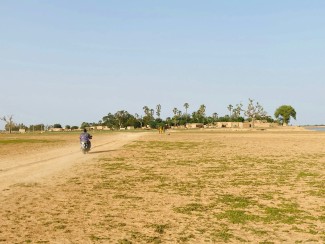To get LDC graduation back on track, and to help other LDCs, reform of the international system of support must be fundamental and far-reaching.
At the start of 2020, a dozen least developed countries (LDCs) were on schedule to leave the category by the middle of the decade. That timetable now looks uncertain.
COVID-19 has exacted an unprecedented human toll as underprepared health systems struggle to cope and workers in lockdown lose their livelihoods. Many economies are collapsing as demand for exports falls, tourism tumbles and remittances slump with the repatriation of foreign workers. As LDCs and others struggle to repay their debts, global financial turbulence looms.
The UN Committee for Development Policy (CDP), the body responsible for monitoring the category and recommending countries for graduation, is consulting governments about what action to take. No decision has yet been made to delay any country’s graduation or to put in place longer transition periods. But a range of outcomes are possible.

Source: Committee for Development Policy Secretariat
*ECOSOC: UN Economic and Social Council
Six countries were close to meeting the UN criteria for graduation for the first time: Cambodia, Djibouti, Lesotho, Senegal, Togo and Zambia. Coronavirus will slow their progress.
The current downturn shouldn’t be seen as a one-off, with LDCs bouncing back quickly. The 2007-08 global economic crisis suggests that LDCs will take years to recover.
Global health, economic and environmental crises are becoming more frequent, and the fallout for LDCs regular and calamitous. Even before the current shock, LDCs suffered worse than most from trade, financial and commodity price volatility, cyclones, droughts and other disasters.
Not enough has been done to make LDCs more resilient or to boost incomes. In a paper published by the Commonwealth Secretariat last month, I argue that the support measures for LDCs could be much more ambitious.
A comprehensive overhaul of the system of international support needs to aim not only at the 18 countries at or near the graduation threshold, but the other 29, many of which in recent years have become more vulnerable and moved even further from graduation.
The recovery from COVID-19 represents a chance to put in place deep-rooted, systemic improvements to the multilateral architecture relating to LDCs – driven by LDC governments themselves and differentiated according to context.
While existing support for LDCs is welcome, any new support architecture should be much more extensive, running across six areas:
1. The international system
UN entities and institutions such as the World Bank and International Monetary Fund should coordinate LDC-related activities better and use the category more in aid, lending and other decisions. A facility to support graduates, as considered by the CDP earlier this year, would help accommodate differences within the category. Direct assistance should be provided for less-advanced members of the group.
2. Finance and investment
Donors should meet official targets and allocate a higher proportion of aid to graduating countries toward building productive capacities. For all LDCs, new forms of financing need to be approached carefully and strategically. Help with growing public revenues is a bigger priority. Debts should be cancelled during crises as big as the current one; not just interest payments suspended.
3. Trade
World Trade Organisation special and differential treatment (SDT) for LDCs, while useful, could be strengthened. Some types of SDT have already run out or will soon do so, and could be extended. Several countries do not provide full duty-free coverage for LDC exports, while relaxed rules of origin have been shown to benefit LDC exporters. Ecommerce is playing a bigger role in LDC trade – and here the interests of LDCs must remain paramount in bilaterals and multilaterals.
4. Commodities and resources
Commodity price volatility has been one of the worst sources of instability for LDCs, and a series of innovative proposals has been made to smooth prices, including a counter-cyclical financing facility; transactions taxes; and revitalised ‘smart’ commodity agreements.
5. Technology
The new technology bank for LDCs was launched on a small budget and should be funded better. Knowledge and dissemination of technology in LDCs needs to be encouraged through the transfer of corporate personnel.
6. Climate breakdown and environment
LDCs are affected more than most. South-South collaboration could be encouraged more; the LDC climate fund replenished; and financing made more accessible. The administrative requirements for funding are often too great for small, capacity-constrained countries. Disaster resilience could be made more pre-emptive and built into infrastructure in advance, rather than addressed only via insurance.
Without far-reaching reform to international support, any hope of meeting graduation targets will be in vain. The COVID-19 downturn will take many years to play out. To get things back on track, the world needs to help cushion the impact of this crisis and shield LDCs from future ones.
---------------------
Download the paper here.
-----------------------------
A webinar on 28 May 2020 will be covering LDC graduation and COVID-19's impacts, hosted by EIF and the Commonwealth Secretariat. Register here.
Header image - ©Asian Development Bank via Flickr Creative Commons Attribution-NonCommercial 2.0 Generic (CC BY-NC 2.0) license.
If you would like to reuse any material published here, please let us know by sending an email to EIF Communications: eifcommunications@wto.org.



